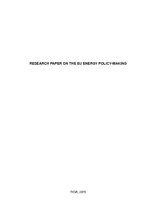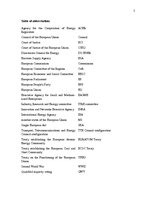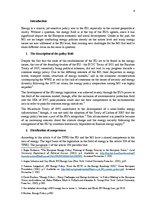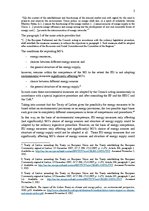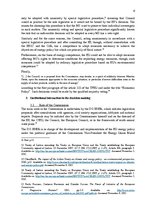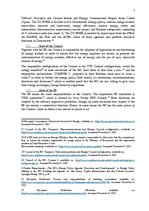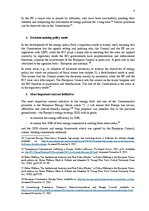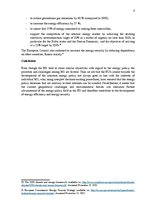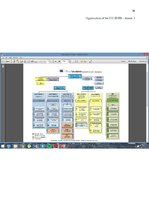| Nr. | Sadaļas nosaukums | Lpp. |
| Table of abbreviations | 2 | |
| Introduction | 3 | |
| 1. | The description of the policy field | 3 |
| 2. | Distribution of competences | 3 |
| 3. | Institutional interaction in the decision making | 5 |
| 4. | Decision-making policy mode | 7 |
| 5. | Most important current initiatives | 7 |
| Conclusion | 8 |
Conclusion
Even though the MS tend to share similar objectives with regard to the energy policy, the priorities and challenges among MS are diverse. Thus we see that the EU’s course towards the development of the common energy policy not always goes in line with the interests of individual MS, who, using complex decision-making procedures, have ensured that the energy policy decisions that are contrary to their interests can be avoided. Nevertheless, it seems that the current geopolitical challenges and environmental threats will stimulate further advancement of the energy policy field in the EU and therefore contribute to the development of energy efficiency and energy security.
…
RESEARCH PAPER ON THE EU ENERGY POLICY-MAKING Energy is a crucial, yet sensitive policy area in the EU, especially in the current geopolitical reality. Without a question, the energy field is at the top of the EU’s agenda, since it has significant impact on the European economic and social development. Unlike in the past, the MS are no longer conducting energy policies merely on the nation level and many energy issues are now addressed at the EU level, thus creating new challenges for the MS that tend to share different views on the issue in question. The structure of the research paper is the following: 1. The description of the policy field; 2. Distribution of competences; 3. Institutional interaction in the decision making; 4. Decision-making policy mode; 5. Most important current initiatives; 6. Conclusion.

